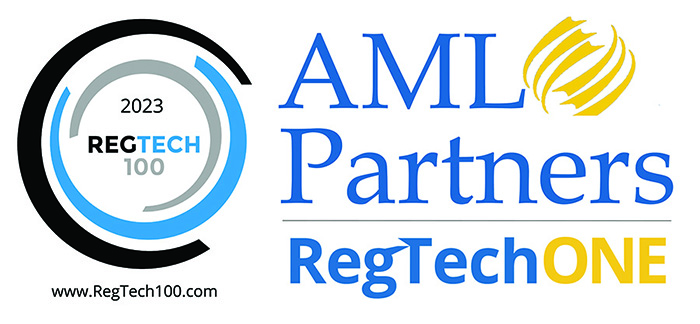BSA AML: FinCEN warns of sanctions evasion via U.S. commercial real estate
The U.S. Financial Crimes Enforcement Network (FinCEN) this week issued an alert to all financial institutions regarding potential investments in the U.S. commercial real estate (CRE) sector by sanctioned Russian elites, oligarchs, their family members, and the entities through which they act. These investments violate AML Compliance and AML/BSA regulations.
A well-known problem, FinCEN issued a similar alert warning in March of 2022 of sanctions evasion by sanctioned Russian elites and their proxies involving high-value assets, including both residential and commercial real estate. FinCEN wants AML Compliance officers to pay special attention to sanctions evasion-related vulnerabilities in the CRE sector.
In addition to AML Compliance concerns generally, FinCEN’s enforcement against sanctioned Russian citizens represents a sustained effort by FinCEN to hold accountable Russian oligarchs and elites providing support to Russian leadership in its war on Ukraine. FinCEN urges financial institutions to identify and report suspected sanctions evasion by sanctioned Russian elites and their proxies.
FinCEN’s real estate-focused alerts are also part of a broader effort by the Department of the Treasury to effectively implement the U.S. Strategy on Countering Corruption. A key priority seeks to increase transparency in U.S. real estate transactions and prevent corrupt elites and other illicit actors from hiding their ill-gotten wealth in the U.S. real estate market.
FinCEN’s most recent alert provides financial institutions with guidance on identifying potential sanctions evasion activity in the CRE sector by providing potential red flags and typologies related to this activity. FinCEN has derived the typologies and red flags in this alert from its analysis of BSA data, open-source reporting, and information from law enforcement partners.
BSA AML: Sanctions evasion vulnerabilities in the commercial real estate market
FinCEN assesses that sanctioned Russian elites and their proxies are likely attempting to exploit several vulnerabilities in the CRE market.The CRE market presents unique challenges for financial institutions in detecting sanctions evasion.
First, CRE transactions routinely involve highly complex financing methods and opaque ownership structures that can make it relatively easy for bad actors to hide illicit funds in CRE investments. For example, CRE transactions nearly always involve private companies or institutional investors as the buyer and/ or seller. As such, trusts, shell companies, pooled investment vehicles, or other legal entities are regularly used on both sides of CRE transactions.
The standard use of such legal entities in CRE deals is typically due to the high value of the properties, ranging from the low millions of dollars to the billions of dollars, and the need for buyers and sellers to limit their legal, tax, and financial liability.
In addition, several layers of legal entities are frequently involved as CRE buyers or sellers, and they may be domiciled in offshore jurisdictions. Further, these legal entities often have numerous investors behind them and, as a result, it can be difficult for a financial institution to identify all of the beneficial owners.
Based on BSA reporting, sanctioned Russian elites and their proxies may seek to further obfuscate their involvement in a CRE transaction by decreasing their percentage of ownership in an investment below the threshold set by a bank’s KYC CDD protocols (Know Your Customer—Customer Due Diligence).
Stable market with high-value transactions lures sanctions evaders
Other features of CRE present opportunities for those engaged in illicit finance schemes. For instance, the relative stability of the CRE market and the high value of CRE properties provide them with an easy way to store large amounts of wealth. In addition, there is the potential for steady income that CRE properties can generate for their owners.
Also, foreign investors in general make up a large percentage of U.S. CRE transactions. The lack of transparency in the CRE market and the stability of returns in this market may have attracted a significant number of illicit actors among those foreign investors in recent years, including sanctioned Russian elites and their proxies.
According to one study of 2021 U.S. CRE transactions, 8.4 percent of those surveyed reported that they closed a sale with a foreign client residing abroad, and this figure was above 10 percent for several years prior to the Covid pandemic.
Some features of the CRE market are generally based on legitimate business decisions, but they can make it challenging for financial institutions to identify the underlying source or sources of funds and whether politically exposed persons (PEPs) or corrupt elites are involved.
For instance, since the use of multiple legal entities is common in CRE transactions, financial institutions should not underestimate the potential for this practice to be part a larger scheme of illicit financial activity such as sanctions evasion.
To learn more about the details, check out FinCEN’s full alert at this web address.
_______________
RegTechONE: Your do-everything GRC platform solution for AML Compliance and GRC
AML Partners, a RegTech 100 Firm, designs GRC and AML Compliance software solutions that transform the work of Governance, Risk, and Compliance. With AML Partners’ platform technology for AML Compliance and RegTech, AML and GRC software solutions are easier, faster, and so much more effective and efficient. With extraordinary configurability and built for API extensibility and Business Intelligence, the RegTechONE platform powers a range of end-to-end AML/KYC tools but also Dynamic Case Management, vendor management and risk, cyber risk workflows, regulatory workflows, and so much more. RegTechONE: For your institution’s Network of Applications and Ecosystem of Permissioned Data managed by a single Compliance platform. Contact us today for more information and to explore options for a Proof of Concept demonstration.


